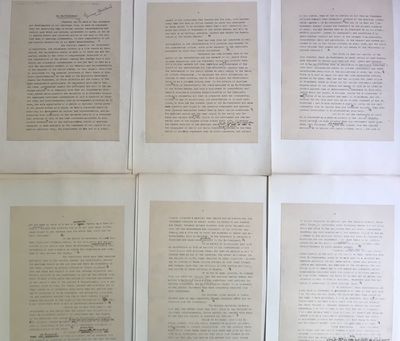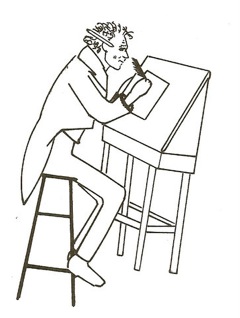1907 · [Princeton, NJ?]
by Cleveland, Grover (1837-1908; 22nd and 24th President of the United States, 1885-1889 and 1893-1897)
[Princeton, NJ?], 1907. 4to (28 cm.). 10 pages [typed rectos only], approximately 2850 words, each leaf mounted along the left edge to a larger, heavier sheet, each page double-spaced, with 29 separate ink corrections, deletions, and additions by Cleveland in his characteristic hand (44 words added, 19 deleted, 20 typos of poor strikes corrected); in addition, there are numerous editorial marking on each page, "by Grover Cleveland" is written in pencil in another hand underneath the title on the first page, and "corrected by Cleveland" is written in pencil in yet another hand at the upper corner of the first page. The longest correction or addition occurs (truncated)


![THE FLIGHT OF TIME. [caption title] A biographical sketch of Maud Mather Gallagher (1870-1897), interspersed with New Jersey history and photos](https://d3525k1ryd2155.cloudfront.net/h/518/663/1690663518.0.m.jpg)
![[ANGLING] [TRADE CATALOGUE]](https://d3525k1ryd2155.cloudfront.net/h/509/650/1690650509.0.m.jpg)